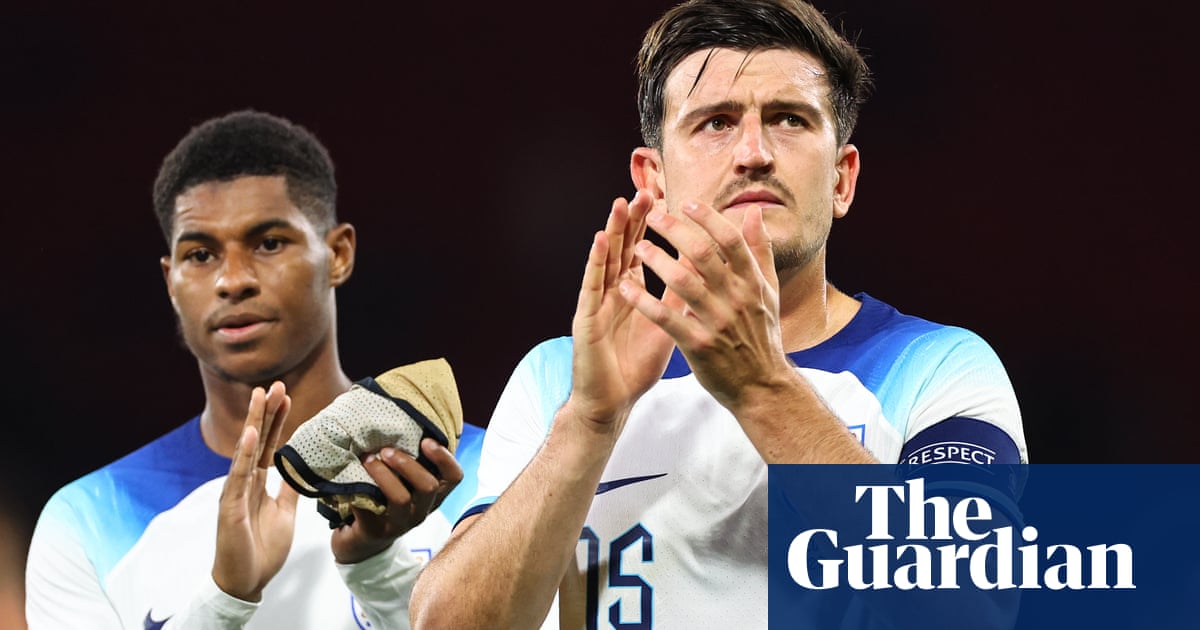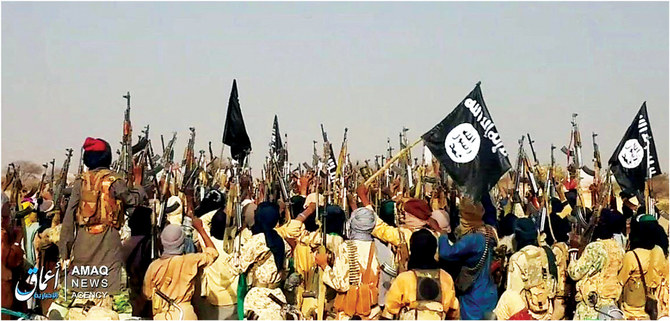
t was the perfect storm, although Granit Xhaka would doubtless choose a different adjective. Arsenal had lost three Premier League games in a row at home and badly needed something from the visit of Burnley in mid-December. It was not proving straightforward and, with the game level at 0-0 in the 56th minute, Xhaka felt his blood run hot.
He had triggered the flashpoint with a foul on Dwight McNeil and, from that point, it got out of hand. McNeil squared up to Xhaka, who was never going to back down and then another Burnley player, Ashley Westwood, arrived on the scene. He pushed Xhaka, who got back up to grab him by the throat. Westwood went down and Xhaka’s red card was frustratingly inevitable.
When it rains, it pours. The Arsenal striker Pierre-Emerick Aubameyang was mired in a scoring drought and so he obviously had to put through his own goal to give Burnley a 1-0 win. But it was Xhaka who had cost the team and social media was characteristically quick to let him know, to make him the scapegoat, to coat him in vitriol – and not for the first time.
It had been a similar story in October 2019 after the notorious Crystal Palace incident when Xhaka was booed off upon his substitution by a section of the Emirates Stadium support and reacted by telling them where to go. Back then, his Arsenal career looked over – he was taken out of the team for a month and stripped of the captaincy – and his future at the club once again looked bleak.
Spool forward to now and the transformation – again, not for the first time – has been remarkable. Xhaka had plenty of opportunity to soul-search during his three-match suspension and it was a period during which Arsenal continued to struggle. When he was back for the home derby with Chelsea on Boxing Day, they had taken only five points from 10 league matches to lag 15th in the table.
Chelsea was the start of the fightback. Xhaka was excellent that day, scoring with a free-kick and driving the team to a 3-1 win, and he has barely looked back. Arsenal go into the game at Aston Villa on Saturday with their tails up despite a 2-1 defeat at Wolves on Tuesday. In some ways, that was a snapshot of where they are under Mikel Arteta; growing into a coherent unit but veering off, at times, because of isolated moments – in this case, the red cards for David Luiz and Bernd Leno.
The broader picture, starting on Boxing Day, shows five league wins in eight matches, with two draws, and it is no exaggeration to say Xhaka is in the form of his five seasons at Arsenal. He feels it himself. It is questionable whether he has received the credit he deserves, with some having already reached their conclusions about him. But the evidence has been there for all to see. Xhaka has won his duels, showing strength and judgment in his one-on-one defending; he has passed with sharpness and incision, and he has brought balance in his developing midfield partnership with Thomas Partey.
“I wanted to take positives from a negative situation after Burnley, to use it to take steps forwards,” Xhaka says. “I always try to find the positives in everything I do in football. I said to myself: ‘I can’t alter what’s happened, it’s a fait accompli but it’s my mistake and I can learn from it.’ It was important to let people know that the team could still rely on me, that I was going to come back from this as a stronger and better person. That’s what has happened. Physically and mentally, I am in a very good place.”
It is a hazardous occupation to write off Xhaka, principally because of his mental toughness. He says it comes from his parents, particularly his father, Ragip, who spent three and a half years as a political prisoner in Yugoslavia from 1986. Xhaka Sr’s crime? To take part in demonstrations against the communist central government in Belgrade; as a proud Kosovan, he had wanted to stand up for the democratic rights of his people. After his release from jail, he sought a fresh start and moved with his wife, Eli, to Switzerland, where Xhaka was born in 1992.
“We started in Switzerland with less than zero,” Xhaka says. “We had nothing, we knew nobody there. It’s difficult for people to grasp today the effect of something like that; essentially to be a political refugee as a youngster. It’s definitely part of my character to be a strong person. I have never run away from anything.”
Perhaps, the social media trolls ought to know this, even if it is plain that their poison has, at the worst of times, seeped through Xhaka’s skin. He is phlegmatic when discussing an issue that affects many high-profile players and makes it clear that “criticism of sporting performance” is valid; it is all in the game. But there are limits and Xhaka has found them exceeded too often. His daughter was three weeks old at the time of the Palace game; incredibly, she was the subject of horrific messages, as was Xhaka’s wife, Leonita, who is seven months pregnant with their second child – another daughter.
“There have to be boundaries to the criticism,” Xhaka says. “For example, there should be no references to any player’s family, personal attacks and certainly no mention of any player’s children. Criticise the player and his game by all means but keep it within that area. Don’t go too far.
“I had the big thing against Palace … I’ve also had the Burnley issue … and October 2019 was the hardest time for me as a footballer. But the attacks on my wife and the targeted comments about my daughter, my friends – that’s really beyond the pale. One of the problems is we don’t know who is writing this stuff; this is the nature of social media.
“As I say, criticise the player. I’m the one on the pitch. But your family and friends are nothing to do with it. It’s happened recently with [the Manchester United striker] Anthony Martial and his wife receiving some hostile comments. You have to ask yourself: ‘Why?’”
Xhaka describes the players-turned-pundits as having the capacity to trigger social media pile ons and he feels that their criticisms can be more personal and aggressive than those in Switzerland and Germany, where he played previously. After the Burnley red card, Patrice Evra revealed on Sky Sports that Thierry Henry had once switched off the TV and refused to watch an Arsenal game when he saw Xhaka was the captain.
“There have been comments made by Evra, Henry … they make them as ex-players, sometimes about the performance of a particular player, and they kind of invite that wave of social media criticism,” Xhaka says. “I think some pundits might actually be provoking that criticism. It’s something you never see in Switzerland or Germany, that just doesn’t happen. It seems to be rather unique to the United Kingdom.”
Xhaka does not want to dwell on the Palace controversy, although he knows “it’s going to stay with me, it’s a part of my history as a player”. Suffice to say it was “not pleasant and hard to describe”. He adds: “It’s something I would never wish on any player … nobody should have to experience that feeling.”
What Xhaka does detail is the chain of events afterwards which almost led him to him leave for Hertha Berlin in January of last year and how Arteta, who replaced Unai Emery just before Christmas 2019, talked him out of it.
“I took a big knock, I was quite wounded by the experience,” Xhaka says. “Hertha made contact, I discussed it with Arsenal and there were only a few details to complete for me to make that move. However, then Mikel arrived and we spoke. He wanted to hear my side of the story.
“I have to say it was the first time I had met him; I had no prior knowledge of him as a man or a coach. But we had a really great one-to-one chat – very open, very positive, very long. He looked deep into me, into my thinking, and he persuaded me that we should go on together, stick with each other on this Arsenal project. I am happy that I made the decision.”
Arteta arrived from Manchester City and he said publicly that Xhaka had been on the club’s list of midfield targets, which was a nice thing to put out. Xhaka has been impressed by the little touches from Arteta and how they come together in a wider plan, which he communicates with clarity.
“Mikel is an unbelievably good coach who puts a huge amount of detail into his work,” Xhaka says. “We have individual discussions for every match, a plan about what is expected for that game. He even hands out an individual match plan to each player. We are always very well prepared for our opponents.
“The individual work he does with every player – that’s the trick. And after the match, there is a very detailed analysis of what’s been done. Who was where. As far as the opponents go, we work on our offensive line, where every person should stand and this detail is a huge advantage for me. Also, when you’re without the ball, it gives you a great advantage for the anticipation of the opponents’ moves.”
Xhaka is convinced that, despite the slump leading up to Christmas, Arsenal are on the right path. To him, the structure under Arteta is sound; it is the individual errors that need to be eradicated.
“We had the run without wins but even during that time, I think we have played without any self-doubt,” Xhaka says. “Our mistakes, like the red cards – my own included – have been the fault of each of us rather than one with the plan. As a collective, we’ve been functioning well and we can do something special, including this season. We are playing a very tight, compact game of late and we are also gleaning a lot of respect from the other big teams we are playing. I think we are bound for glory.”












